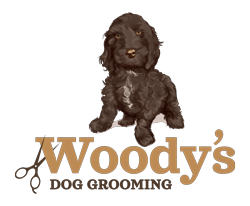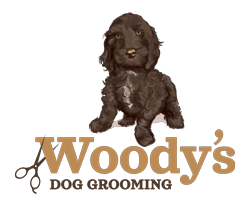- Home
- Service Detail
Oral Hygiene For Your Dog
It is estimated that by the time they are two years old, 80% of dogs begin to show signs of oral disease. Combat this with the Emmi-Pet patented oral care system, the 100% original ultrasound technology. It is 100% safe, gentle, soundless (it operates outside the hearing range of dogs) and proven to be effective with no brushing.
Oral hygiene for your dog in Oxfordshire
WHY IS ORAL HEALTH IMPORTANT FOR MY DOG?
Like us, poor oral hygiene for your dog can lead to infection, tooth loss, bone & jaw damage and severe pain. Some dogs, especially the short-nosed types are particularly prone to oral disease and need extra attention. Poor oral health also increases the risk of damage to internal organs and in particular, disease of the heart valves.
EMMI-PET EFFECTIVELY COMBATS:
- Gingivitis & Periodontitis
- Oral cavity diseases
- Plaque & tartar build-up
- Bad breath

HOW DOES ‘EMMI’ WORK?
Ultrasound waves (the same as used in medical applications) are generated by a chip which sits within the head of the toothbrush. When combined with Emmi’s specially formulated paste, microbubbles are generated which eventually implode. The energy released when these microbubbles implode effectively removes plaque – a combination of food particles, bacteria & saliva which sticks to your dog’s teeth every time it eats – from your dog’s mouth, leaving it clean and odour free. No more doggie breath! If not regularly and effectively removed, plaque will go on to form tarter (the hard, scaly deposits you will see on your dog’s teeth, particularly the canines and molars). Additionally, since ultrasound waves can harmlessly penetrate up to 12cm into surrounding tissue, blood flow to the gums, tooth pockets and oral cavity tissue generally, is increased, helping reduce and even reverse other oral diseases such as gingivitis and periodontal disease. The brush loaded with paste is simply held against the dog’s tooth/section of mouth for about 10 seconds before moving on to another tooth/section. There is no brushing action needed.

IS ‘EMMI’ SUITABLE FOR MY DOG?
Treatments can only be undertaken on dogs in good general health and of suitable temperament. Before any treatment can be booked, we will need to undertake an assessment of suitability. The Emmi oral health system is intended as a useful addition to your dog’s health and welfare and is designed for dogs with mild to moderate oral health issues only. It is not intended to replace veterinary care, so think of it as you would a visit your dental hygienist. If your dog is elderly, has any ongoing health issues, or has extensive oral problems we will refer you to your veterinary surgeon for an opinion before we can commence any treatment
HOW CAN I GET ‘EMMI’ FOR MY DOG?
Unless you have a puppy or your dog has had a veterinary dental under anaesthetic very recently (within the last four weeks), initial treatments are offered in blocks of five. To obtain the best results these sessions should be scheduled as close together as possible, preferably on a daily basis but certainly no more than one week apart. Depending on the severity of oral problems these blocks of five sessions may need to be repeated more than once. Once a good result has been achieved, your dog may move on to ‘maintenance’ appointments usually scheduled once a month.

Did you Know?
- Adult dogs have more teeth than humans (42 compared to 32).
- Puppies have ‘milk teeth’ just as we do – they shed them between 4 and 6 months.
- The roots of dog’s teeth are very long – rather like an iceberg. The crown is only about one third of the total length of the tooth and for the canines the crown only makes up a about of quarter of the total length.
- Dogs use their teeth differently to us – the long pointy ‘canine teeth’ are for grasping, lifting and pulling, whilst the ‘carnassial’ (molar) are for slicing food. In contrast we use our molars for grinding and pulverising our food.
- Dogs are less likely to develop cavities in their teeth than we are… because the species of bacteria which metabolise sugars into acids are very rare in dog’s mouths; and dogs (hopefully) consume much less sugar than we do!

